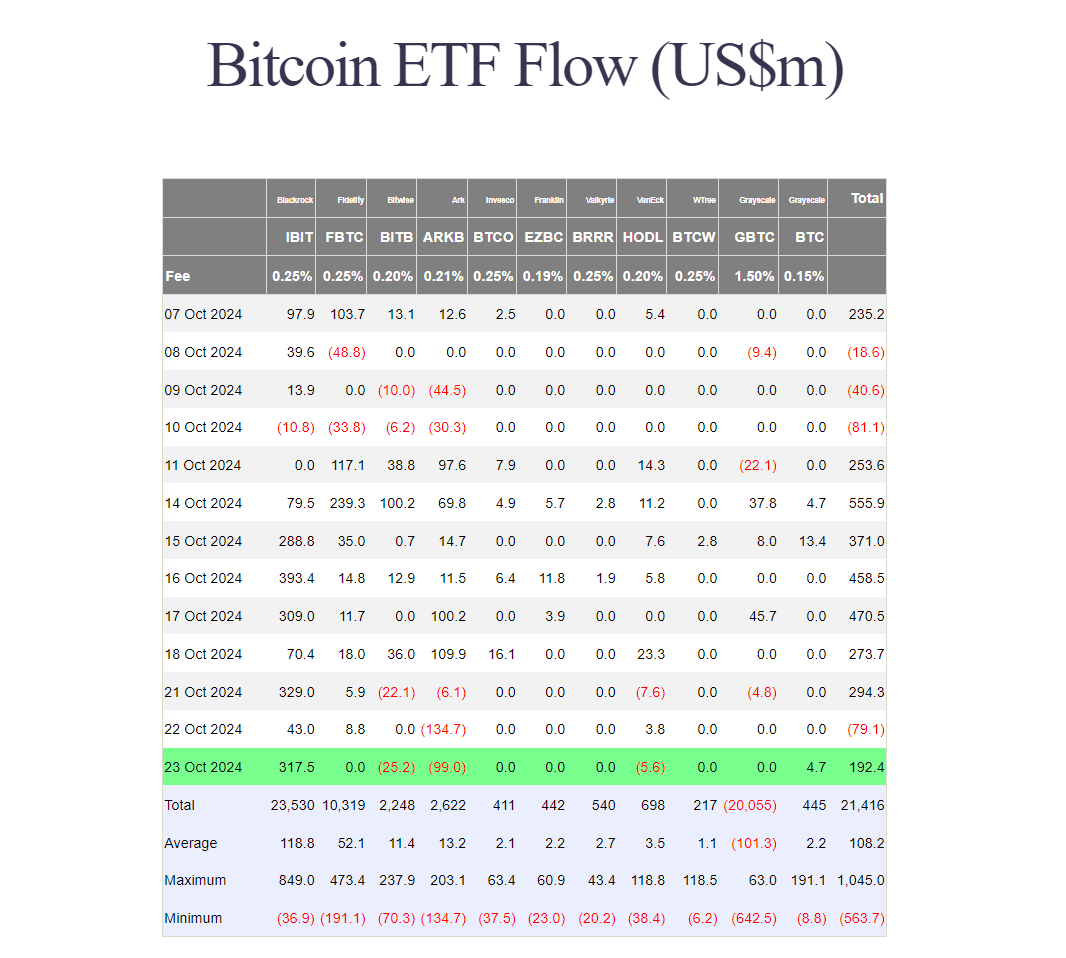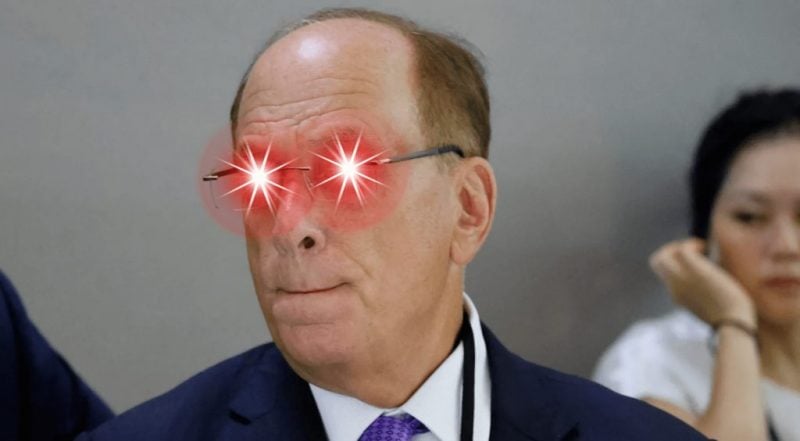Key takeaways
- BlackRock’s iShares Bitcoin Trust generated more than $317 million in inflows, contrasting losses from other ETFs.
- Bitcoin price remains volatile, peaking at $69,500 last week and now around $67,000.
Share this article
BlackRock’s iShares Bitcoin Trust (IBIT) continues to attract investor interest, ending Wednesday with more than $317 million in net inflows, while most competing ETFs struggle to maintain their winning streaks.
Behind IBIT, Grayscale’s Bitcoin Mini Trust, the BTC fund, reported gains of nearly $5 million yesterday, according to data from Farside Investors. In contrast, ARK Invest’s ARKB, Bitwise’s BITB, and VanEck’s HODL suffered a combined loss of almost $130 million.

With massive IBIT inflows and additional BTC capital, the US spot Bitcoin ETF group reversed a negative trend yesterday, collectively attracting approximately $192 million.
These funds showed mixed trends this week, unlike last week where no clear hemorrhages were reported. Flows turned negative on Tuesday after $294 million in gains on Monday.
The ARKB fund, which saw more than $300 million in inflows last week, was hit hard. The ETF has seen nearly $240 million in redemptions so far this week, nearly erasing its gains from the previous week. Meanwhile, it appears that outflows from GBTC have eased; the fund only posted about $5 million in losses on Monday.
The latest performance coincides with Bitcoin price fluctuations. After peaking at $69,500 last week, Bitcoin has pulled back, now hovering around the $67,000 level, according to CoinGecko.
Analysts at Standard Chartered are confident that the largest cryptocurrency will return to its previous high before the next president is chosen, increasing the chances of Uptober.
However, recent declines could cloud the outlook for the period ahead, particularly as the US presidential election approaches. Bitcoin could face a “sell the news” scenario ahead of the key event.
As elections approach, investors often speculate on the impact the results could have on various asset classes, including cryptocurrencies. This anticipation can lead to increased volatility, with traders potentially selling assets to lock in profits before election results are announced.
Recent Bitcoin price fluctuations are more likely influenced by broader macroeconomic trends than direct political events. However, any significant election-related news could trigger reactions from investors seeking to adjust their portfolios based on perceived risks or opportunities. Some analysts predict that a Trump victory could lead to a surge in Bitcoin prices due to his pro-crypto stance.
Once the election is over, the market will likely take little rest heading into the next FOMC meeting, when the Fed makes its interest rate decision.
The central bank is expected to cut rates by 25 basis points as part of ongoing monetary policy adjustments, which analysts say could further boost Bitcoin prices.
Share this article




